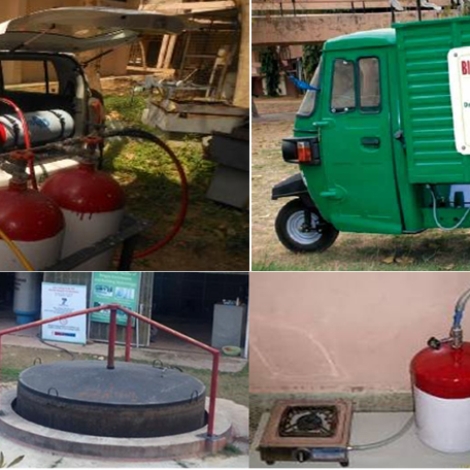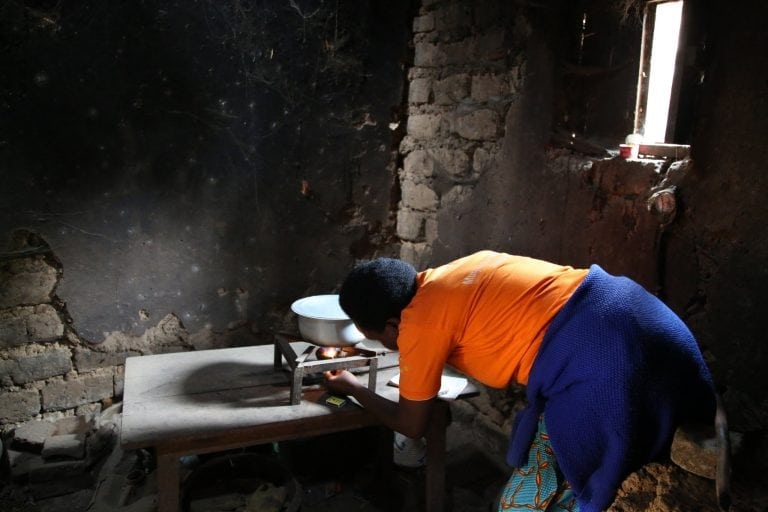“Independence begins at the bottom. A society must be built in which every village has to be self-sustained and capable of managing its own affairs.” -Mahatma Gandhi
The father of the Indian nation “Mahatma Gandhi Ji” had a vision for inclusive growth and development of India. He visualized Swadeshi (self-sufficient) communities that are closely connected to the local and natural environment, while at the same time generating income. Seventy years later, a quarter of the world’s population still lives without access to basic amenities such as access to electricity and sanitation. Provision of sustainable and affordable energy is key for the development of a nation while sparing damage to the environment. The energy requirements of India are increasing, and not generating enough to fulfill the demand. In fact, the requirements are largely (around 80 percent) dependent on expensive import from crude oil producing countries.
The gap between consumption and production is too high in India. This gap is projected to grow at a disastrous rate of 5 percent each year—one of the highest in the world. Ensuring sustainable and affordable access to energy is not just a need for urban India, but also one of the vital instruments in alleviating poverty and enabling holistic rural development.
India has a plethora of waste biomass (agricultural, forestry, municipal, animal droppings, food waste etc.) that can be utilized in a sustainable manner to produce energy and useful bio-products for a circular green economy. This bio-waste needs to be treated for reducing methane emissions and environmental pollution. Biogas derived from locally available bio-waste is thus a viable solution to solve the dual problems of waste management as well as energy security.

Biogas production, enrichment and bottling facility developed at IIT Delhi campus. Photo courtesy of Pooja Ghosh
India has a potential to generate around 49 billion m3 per year of biogas. But at present, biogas production in India is only about 2.07 billion m3 per year. As of 2017, a total of 5 million family-sized biogas plants have been installed in the country, out of the potential 12 million plants. There exists a huge untapped biogas-based energy reserve that can be generated from waste biomass in India.
Biogas technology has significant utility in the Indian rural economy, and can satisfy numerous end uses such as provision of energy for basic household necessity such as cooking of food and household lighting. Most of which is still availed with kerosene in many parts of rural India. Biogas can also be suitably upgraded and bottled into cylinders and can be used as an alternative to compressed natural gas (CNG) in automobiles. Biogas systems also provide a residue organic waste after anaerobic digestion that has superior nutrient qualities over the usual organic fertilizer.
The solutions can be small scale to enable localized sale and distribution of gas. Consequently, biogas may also provide income generating opportunities. Introduced on a larger scale, biogas may also diminish the dependence on wood as fuel. Biogas projects can also have a substantial impact on the lives of rural women.
A regular supply of energy piped to the home reduces, if not removes, the daily chore of gathering wood, which can, in areas of scarcity, be the single most time consuming task of a woman’s day. By getting involved in biogas projects, women can also have income generating activities. Thus, biogas technology can truly help in making the villages of India self reliant both in terms of energy (Gram Urja Swaraj) as well as employment.
About the Authors
Dr. Virendra Kumar Vijay is a Contributing Editor at Engineering for Change working as a Professor at IIT Delhi. He is actively engaged in research and worked for more than 25 sponsored research and consultancy projects from India and abroad. He has 150 publications in journals and conferences, seven books and one lab manual to his credit. Prof. Vijay has successfully developed technology on Biogas Enrichment and bottling for Vehicular Application and transferred it to the industries and field. He also received a patent for it.
Dr. Pooja Ghosh works at the Centre for Rural Development and Technology, Indian Institute of Technology Delhi, India. Her area of domain is Environment Management with a keen interest on broader aspects like Environmental risk assessment, Solid waste management, Wastewater treatment, Biotechnological solutions to environmental problems and Sustainability.



What a great write up.Here in my country Cameroon, most rural areas are depending on non-environmental friendly sources of energy to meet their needs in cooking and lighting. I hope to study the Techniques mentioned here and make a change in my community. Thanks very much for sharing
Very helpful.
So Interesting to me. Personally I see this as one of the Best opportunities for alleviating poverty and increasing living standards